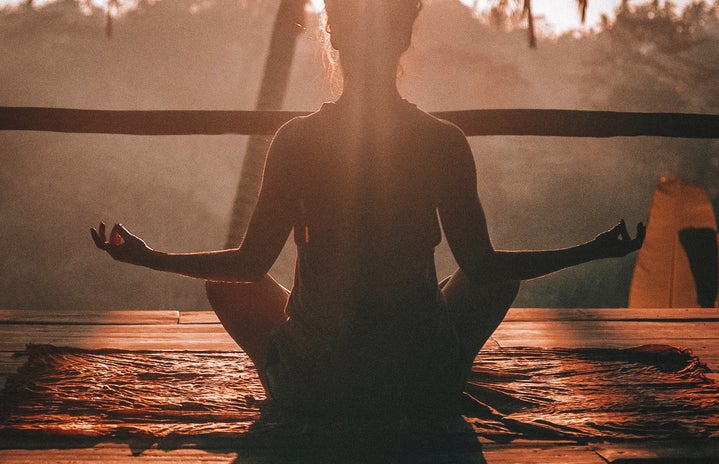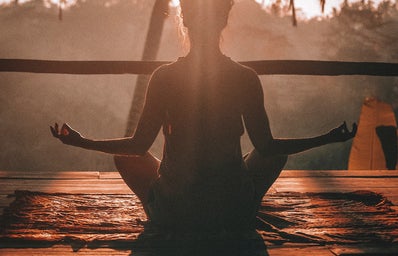I am going to start this off by saying that this particular moment in time is, without a doubt, a deeply unique and unpredictable time in our lives. Regardless of the ongoing pandemic, we as university students are experiencing the 3-4 most unique and important years of our lives and this can be, in a word, stressful.
I know I can be perfectly content while drinking a cup of tea and suddenly be struck with the paralysing thought of my infinite reading lists and deadlines. Not to be dramatic, but stressing about these things truly can and does sometimes negatively affect my whole day, despite the fact that it will have achieved nothing other than to ruin a day I had set aside for me to relax. The most effective way that I have found to combat these sudden unwanted hits of cortisol is to practice meditation. I realise there are a lot of different misconceptions and connotations that come with the practice of meditation, but in this article I am going to attempt to break it down to its most basic components, allowing you to easily de-stress and reset your mind when you feel the anxiety creeping up on you.
1. Breathing
I would argue this is the single most important component of mastering meditation. Breathing is a way calming your body down and returning to your neutral, relaxed mindset – regardless of how scattered and overwhelmed you feel, studies have shown that a few deep, centring breaths are enough to help you feel human again. Box breathing is a specifically effective method of resetting your parasympathetic system – breathe in for four seconds through your nose, hold it for four seconds, then breathe out for four seconds. Repeat this one to three times for the best results.
2. Create an atmosphere
As students, our internal worlds are almost always stressed about one thing or another – it’s our default setting (or at least mine). Having a clean and organised external world can often be exactly what we need to be able to sift through our thoughts and feelings without being overwhelmed by messy and disorganised external stimuli. Cleaning up does not have to involve anything fancy, choose something as simple as making your bed as this often spruces up any room and gives it the illusion of cleanliness. Choose a candle that makes you feel calm and centred, light it, and revel in the serenity of a subtle but substantial change, which will allow you to feel more in control.
3. Dress comfortably
Since this pandemic began, I can count on one hand the number of times I have put on skinny jeans, and let me tell you, it has been freeing. As such, when choosing to sit cross-legged (or whatever your preferred sitting position is) on the floor, you want to be as comfortable and loose as possible, which is hard when you can feel the clasp of your jeans digging into you. Sweatpants and a comfortable t-shirt is a simple and easy option, but if you want to go the extra mile, a matching yoga set works great too.
4. Solitude
Second to breathing, ensuring you are alone is essential to the art of meditation, as the only way to really connect with your inner self is to eliminate all possible external stimuli. Background noises are out of your control, but when you can, ensure you are the only person in the room when you begin meditating as having distracting noises or unwanted energy within the room can interrupt your concentration. Being alone with yourself is hard, but that is precisely what makes it so important.
These four tips are the simplest ways to get you started on your journey to mastering meditation. While it may seem scary at first to be truly alone with yourself, I think you will soon realise that space inside you is the most tranquil and calming place you can be when you feel overwhelmed by factors in your life, regardless of whether your concerns are school, personal life or when all this uncertainty will finally end.
UCL Mindfulness Society holds guided meditation sessions every Tuesday, so be sure to check them out if a guided meditation is exactly what you need to end a stressful day.


